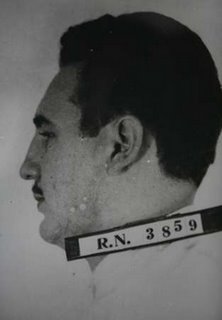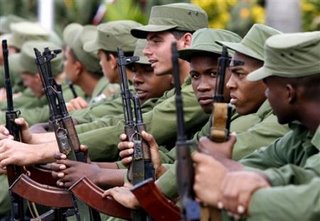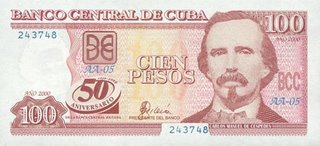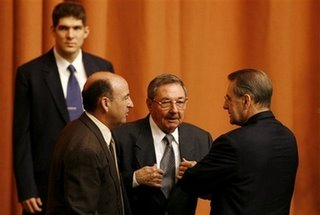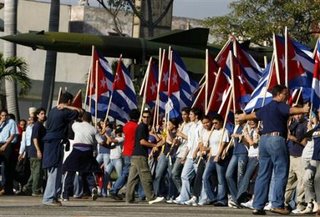 He may be recovering. Or he may be near death. Either way, Fidel Castro is still playing games with the international media, much as he has done for the past half century.
He may be recovering. Or he may be near death. Either way, Fidel Castro is still playing games with the international media, much as he has done for the past half century.
When the dictator supposedly relinquished power back in late July due to serious illness, he asked that the "modest" celebrations planned for his 80th birthday be “postponed” until early December.
The new date would coincide with ceremonies to mark the 50th anniversary of the beginning of the three-years-long guerrilla campaign against Fulgencio Batista.No doubt the thinking at the time was that by 2 December, Castro would have recovered fully - or close enough - to be able to put on his uniform again and make a triumphant return to the Plaza de la Revolucion, waving to the faithful and thanking his "friends around the world" for their continuing support.
Well, the time has come.
All the preparations are in place. A huge military parade has been organised – the first in almost a decade, apparently. More than 1,000 “special guests” have been invited to attend the postponed birthday party. There will be concerts and talks and exhibitions. And endless, inane articles in the tightly controlled official media about Castro.
It should be quite a show.
But the question that is preoccupying the hundreds of international journalists who have asked permission to report from the island during this week is this: will Castro show up to his own birthday party?
And if he does show up, will he speak to the assembled loyalists? What if he doesn't show up? What message does that send to ordinary Cubans?
See what I mean? Drama. Tension. Intrigue. Just like a stage play. And Castro, the old ham, loves it. Or at least he used to.
For what it’s worth, here is what I think will happen:
The official media will broadcast 10 minutes of film showing Castro sitting in his hospital room blowing out 80 candles on a massive cake. The dictator will be wearing his olive green uniform and will be surrounded by his brother, Raul, who is supposed to be in charge, and by all or some of his Latin American fans: Hugo Chavez, Daniel Ortega and Evo Morales. And there will be a small group of well-behaved, uniformed Pioneros, who will sing with clear and loud voices "Happy Birthday" to the Comandante, who may even shed a tear or two of appreciation.
But there will be no public outing and no speech. And it will probably be the last time Cubans are shown video of the man who has ruled their lives with an iron fist for the past 47 years alive.
Then again …


